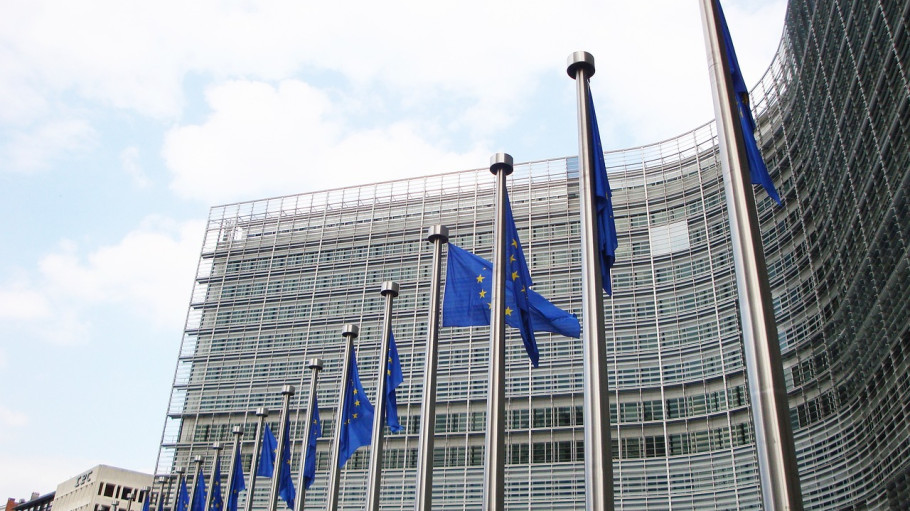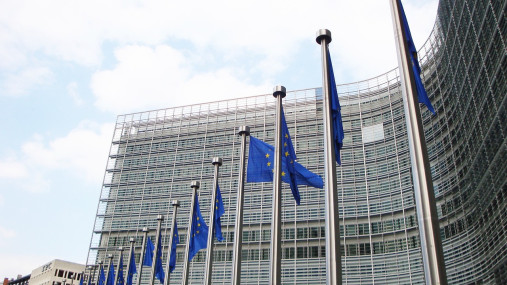
Publications » Position papers » Steel crisis: urgent meeting and EU summit needed to discuss urgent solutions
Steel crisis: urgent meeting and EU summit needed to discuss urgent solutions
Downloads and links
Recent updates

Dear President von der Leyen,
Dear Executive Vice-President Séjourné,
The European steel industry is in crisis, with thousands of job cuts being recently announced, and billions of euros in decarbonisation plans currently being halted.
As such, industriAll European Trade Union and the European Steel Association (EUROFER), the EU social partners for the steel sector, request an urgent meeting with you both to discuss urgent solutions and our Steel Action Plan, which has been endorsed by MEPs across political groups and from different Member States.
The EU steel sector was already suffering from the ongoing energy and raw material crises, and on top of this, the EU market is once again being flooded by cheap foreign steel. In fact, following the economic crisis in China, it is estimated that around 100 million tonnes of Chinese steel are flooding major markets at dumping prices. This, combined with a record-high global steel excess capacity of 560 million tonnes, is catastrophic for the EU steel sector and its workers. However, the issue is bigger than only China, with other steel producing regions of the world, such as South Asia, the Middle East, India, and Japan, rerouting to the EU, depressing global steel prices, and endangering the survival of our sector and investments in the green transition.
Current EU trade defence instruments (TDIs) remain essential, but are unfortunately insufficient to tackle the spill-over of global steel overcapacity. As well as strengthening existing TDIs, the EU steel social partners call for short-term emergency measures and a new comprehensive EU trade initiative as a matter of urgency; import tariffication – taking into account WTO rules - is needed to tackle a double crisis, combining market-distorting export surges with extreme low prices.
With this in mind, we believe that this level of crisis requires a high-level “European Steel Summit”, and we ask you as the European Commission to organise this at the beginning of next year. The Summit should involve the steel social partners, Member States, and high-level officials from the EU institutions, with the aim to address the present crisis. The Summit would be instrumental in preparing the announced “Steel and Metals Action Plan”, as well as other initiatives aiming to lower energy prices, secure the effectiveness of CBAM, access to raw materials, a Just Transition, and to boost investments, such as the Clean Industrial Deal.
The Summit would allow the leaders of industriAll Europe and EUROFER, trade union leaders and CEOs of EU steel companies the opportunity to provide you with a detailed update on the dramatic state of play in our sector and to exchange on recommendations contained in the social partners’ “Steel Action Plan”. Joint cooperation is essential if we are to overcome these crises and save the steel sector and thousands of jobs.
We thank you for considering our meeting request at your earliest convenience and we look forward to your positive response.
Yours sincerely,
Judith Kirton-Darling
General Secretary
IndustriAll European Trade Union
Axel Eggert
Director General
The European Steel Association (EUROFER)

Strasbourg, 17 December 2025 – The European Commission’s latest proposals on the Carbon Border Adjustment Mechanism (CBAM), unveiled today, correctly identify several loopholes that risk undermining its effectiveness, notably regarding EU exports, downstream sectors and circumvention practices. However, despite these laudable efforts, the measures put forward fail to deliver a comprehensive and durable response to carbon and jobs leakage, warns the European Steel Association (EUROFER).
A milestone occasion to quickly and effectively restore affordable electricity, to relaunch the
decarbonization and strengthen the international competitiveness of the European steel
industry.
Brussels, 02 December 2025 – Unchanged negative conditions – U.S. tariffs and trade disruptions, economic and geopolitical tensions, protracted weak demand and still high energy prices – continue to weigh on the European steel market. EUROFER’s latest Economic and Steel Market Outlook confirms for 2025 another recession in both apparent steel consumption (-0.2%, unchanged) and steel-using sectors (-0.5%, revised from -0.7%). A potential recovery is expected only in 2026 for the Steel Weighted Industrial Production index (SWIP) (+1.8%, stable) and for apparent steel consumption (+3%, slightly revised from +3.1%) – although consumption volumes would still remain well below pre-pandemic levels. Steel imports retained historically high shares (27%), while exports plummeted (-9%) in the first eight months of 2025.